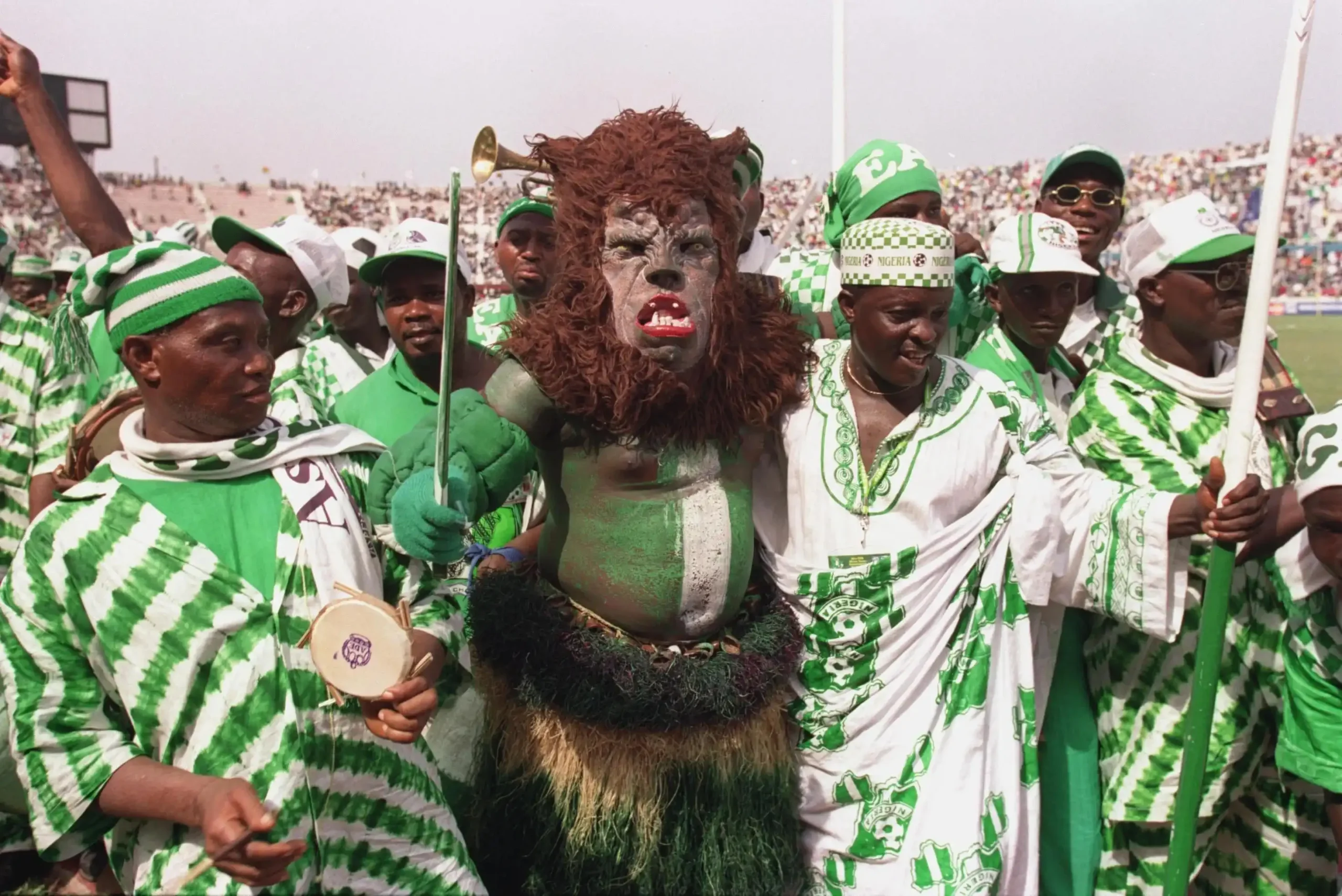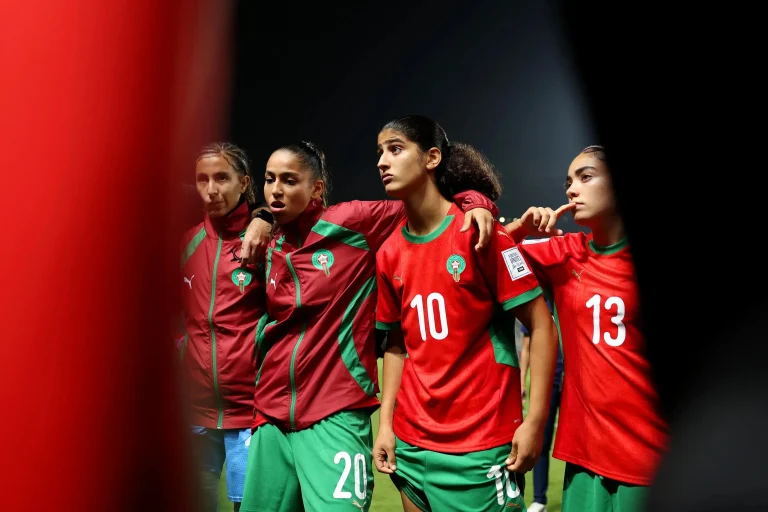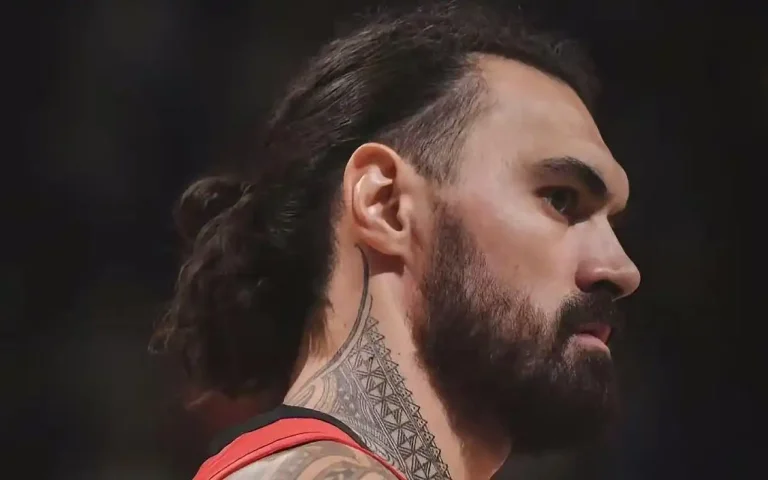Diego Maradona was the talk of the sport. ‘El Pibe de Oro’ was, in fact, the talk of sport. ABC, indeed, ranked him top of an American-monopolised most-famous athletes’ compilation in 1985, ahead of Carl Lewis, John McEnroe, Larry Holmes, Larry Bird, Wayne Gretzky, Martina Navratilova, Tom Watson, Nelson Piquet and Kareem Abdul-Jabbar.
Maradona had, one year earlier, become the first man to break his own world-transfer record. There had been mass hysteria at his presentation as a Napoli player, in front of 75,000 at the Stadio San Paolo. The Argentinian was fresh from a scintillating first season in sky blue. Having thrilled but fell short at the 1982 FIFA World Cup Spain™, Maradona was being tipped to make Mexico 1986 his own. First, however, there was another global finals for his name to headline.
‘El Diego’ had electrified as Argentina conquered the FIFA U-20 World Cup™ in 1979, and now it was the turn of his kid brother to take the first FIFA U-17 World Cup™ (then an U-16 tournament) by storm. Despite a 90-second brace from Hugo Maradona in the Albiceleste’s final group game, however, Fernando Cacares, Fernando Redondo and team-mates fell at the first hurdle.
Nigeria were the rank outsiders. While every other nation aside from USA had players at professional clubs, including the likes of AC Milan, Bayern Munich, Flamengo, Internazionale and River Plate, Sebastian Broderick’s squad was made up entirely of players from schools in Lagos.
An upset of a Maurizio Ganz-spearheaded Italy in their curtain-raiser nevertheless elevated eyebrows, before a goalless draw with Saudi Arabia and a 3-0 handling of Costa Rica got the Baby Eagles, as they were then known, through the group stage. Billa Momoh then inspired a 3-1 comeback win over Hungary that sent Nigeria into the semi-finals. There, a goal by Fatai Atere, eight days after his 14th birthday, secured them a shootout against Guinea, which Lucky Agbonsevafe headlined.
West Germany were the overwhelming favourites to win the final. Horst Koppel’s had beaten Andre Cruz, Bismarck and Brazil 4-3 in the last four, while wunderkind Marcel Witeczek was fresh from back-to-back hat-tricks. Forty years ago today, however, they were dominated in front of 80,000 at Workers’ Stadium.
Jonathan Akpoborie, who went on to star in the German Bundesliga, fired Nigeria into an early lead following masterful wing play from Joseph Babatunde, and a Victor Igbinoba wonder goal killed it off.
“We wanted to do our best, but I don’t think any of us expected to win the title,” recalled captain Nduka Ugbade. “Seeing all the big teams participating in the competition and playing in stadiums filled with 80,000 people was something we did not expect. We had of course heard of FIFA and seen the World Cup on television, but the magnitude of the competition was not known to us until we got to China. We were really happy to get out of the group and then we took it game by game. Suddenly we were in the final.
“The West Germans had a fearsome reputation. They were crushing everyone and Marcel Witeczek was already on eight goals – the same number as our whole team!
“When we got to the stadium, we saw the Germans smartly dressed in adidas kits, looking like professionals. They were much bigger than us. We watched the Brazilians slaughter the Guineans, who we struggled to beat in the semi-finals, 4-1 in the third-place play-off. I’ll admit that we were scared, but we started singing in the dressing room to motivate ourselves.
“Our coaches kept going on about the importance of getting an early goal, and that’s what we got. The crowd went crazy. The Chinese fans were supporting us.
“The Germans were unrelenting in the second half, but we defended with everything we had and Igbinoba scored a screamer in the last minute. When the final whistle went it was a feeling of immense joy. It was indescribable. It changed my life in that I became very popular and today I can go anywhere and I am known by Nigerians.”
Did you know?
Twelve graduates of China 1985 went on to play in the World Cup: Andre Cruz, Bismarck, Fernando Cacares, Neil Cavone, Juan de Dios Ramirez, Marco Etcheverry, Luis Garcia, Hernan Medford, Mauricio Ramos, Fernando Redondo, Erwin Sanchez and Javier Wanchope.



